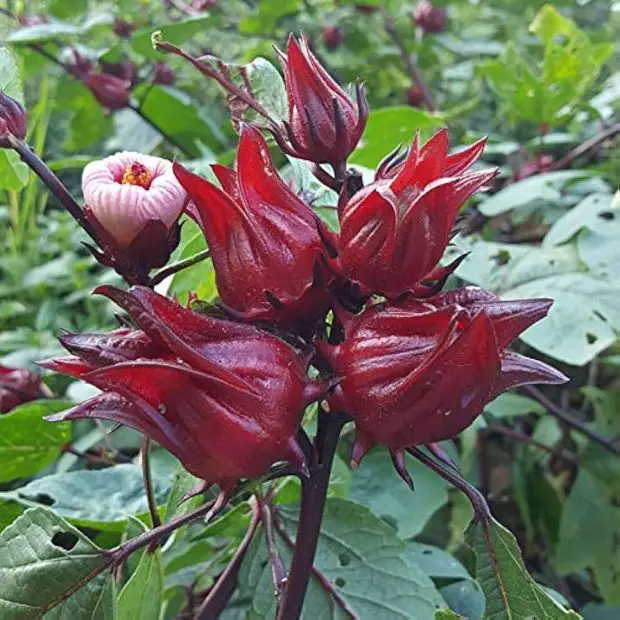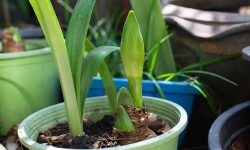Hibiscus isn’t just a stunning tropical flower—it’s a powerful plant with a rich history in traditional and modern wellness. Known for its vibrant blooms and tart, cranberry-like flavor, hibiscus has long been used in herbal medicine across cultures. Today, science is uncovering the remarkable benefits of this botanical gem, confirming what many have believed for centuries.
From supporting heart health and lowering blood pressure to boosting immunity and aiding digestion, hibiscus offers more than just beauty in the garden. Whether enjoyed as a tea, extract, or supplement, this flower brings an impressive array of health and lifestyle benefits that may surprise you.
A Natural Way to Lower Blood Pressure

The Power of Hibiscus Tea for Hypertension
One of the most impressive and well-researched uses of hibiscus is its ability to naturally reduce high blood pressure. Hibiscus tea, made from the dried petals of Hibiscus sabdariffa, has been shown in multiple studies to help manage mild to moderate hypertension. The tea’s rich content of anthocyanins, flavonoids, and polyphenolic compounds contributes to its heart-protective effects by relaxing blood vessels and improving circulation.
These natural plant chemicals act as vasodilators, meaning they help the arteries expand and reduce resistance to blood flow. As a result, the heart doesn’t have to work as hard to pump blood through the body. Over time, this can lead to a noticeable decrease in both systolic and diastolic blood pressure. Unlike many prescription drugs, hibiscus tea does not typically cause significant side effects, making it a popular alternative or complementary option for people seeking a more holistic approach.
Backed by Scientific Research
The blood pressure-lowering effects of hibiscus tea are supported by strong scientific evidence. A well-known clinical trial published in the Journal of Nutrition followed participants with prehypertension or mild hypertension who drank three cups of hibiscus tea daily for six weeks. The results showed a significant average reduction of about 7 mmHg in systolic blood pressure compared to the placebo group, without any adverse reactions.
Another study from the American Heart Association echoed similar findings, suggesting that hibiscus tea works comparably to certain medications used for early-stage high blood pressure. However, it’s important to remember that while hibiscus tea can be a powerful natural aid, it should not replace prescribed medication unless approved by a healthcare provider. Individuals already on antihypertensive drugs should also monitor their blood pressure closely, as combining both may amplify the effect.
nt to medication, but it’s important to consult your doctor before starting any herbal regimen, especially if you’re already being treated for high blood pressure.
A Gentle Aid for Lowering Cholesterol
A Natural Ally for Weight Management
How Hibiscus Supports Metabolism
Hibiscus may play a helpful role in maintaining a healthy weight by supporting your body’s natural metabolic processes. Certain compounds in hibiscus, such as polyphenols and flavonoids, have been shown to regulate fat metabolism, reduce fat absorption in the intestines, and improve liver function—factors that contribute to overall weight balance.
Hibiscus tea, when consumed regularly and combined with a balanced diet and exercise, may help decrease body weight, body mass index (BMI), and waist-to-hip ratio over time. Its mild diuretic effect may also reduce water retention, helping you feel lighter and less bloated.
Scientific Insights and Best Practices
A study published in Food & Function found that overweight individuals who took hibiscus extract for 12 weeks showed significant reductions in body fat, waist circumference, and BMI compared to a control group. These findings suggest that hibiscus may support healthy weight loss when used consistently and responsibly.
To optimize its benefits, hibiscus tea should be consumed unsweetened, ideally 30 minutes before meals. However, it is not a quick fix. Sustainable weight management still requires long-term commitment to healthy eating and physical activity. Always consult a healthcare provider before using hibiscus supplements, especially if you’re on medications or have underlying health issues.
Antioxidant Power for Cellular Protection
Fighting Free Radicals Naturally
Hibiscus is rich in potent antioxidants like anthocyanins, flavonoids, and vitamin C, which help neutralize harmful free radicals in the body. These unstable molecules are linked to oxidative stress—a process that damages cells and accelerates aging, inflammation, and the development of chronic diseases such as cancer, diabetes, and heart disease.
By scavenging these free radicals, the antioxidants in hibiscus help protect DNA, lipids, and proteins from damage. This cellular defense helps maintain healthy organ function and supports longevity.
Research-Backed Benefits
Multiple studies have confirmed the strong antioxidant activity of hibiscus extracts, ranking it among the top herbal infusions for oxidative stress reduction. One study in the Journal of Food Biochemistry found that hibiscus extract significantly increased antioxidant enzyme activity in test subjects, reducing biomarkers of cellular damage.
Regular consumption of hibiscus tea may offer daily protection at the cellular level, making it a valuable addition to a healthy diet. Drinking it freshly brewed helps preserve its antioxidant content for maximum benefit.
Natural Support for Liver Health
Enhancing Detoxification Functions
The liver is the body’s primary detox organ, and hibiscus has been shown to offer natural support for liver function. Thanks to its high content of antioxidants and bioactive compounds, hibiscus may help protect liver cells from damage caused by toxins, oxidative stress, and inflammation. This is especially important as the liver filters harmful substances from the blood, metabolizes fats, and processes medications.
By reducing lipid accumulation and promoting enzymatic balance, hibiscus may help the liver function more efficiently. It also supports bile production, which is essential for digestion and fat breakdown.
What the Science Says
A study published in Food and Chemical Toxicology found that hibiscus extract helped reduce markers of liver damage in subjects with fatty liver disease. Researchers observed decreased liver enzyme levels and improved liver histology after regular hibiscus supplementation. Another study in rats showed that hibiscus could slow down the progression of liver fibrosis and prevent further tissue damage.
More human studies are still needed. However, current evidence suggests hibiscus may support liver health effectively and gently. It may help people at risk of non-alcoholic fatty liver disease. Hibiscus tea can also support natural detoxification. Adding it to your routine may offer lasting liver protection.
A Natural Boost for Your Immune System
Promoting Liver Detox and Fat Metabolism
Hibiscus offers valuable support for liver health by enhancing the liver’s natural detoxification processes. Rich in polyphenols and flavonoids, hibiscus helps neutralize harmful free radicals that can cause oxidative stress and damage liver cells. This antioxidant activity reduces inflammation and supports the liver’s ability to break down toxins effectively.
In addition to detoxification, hibiscus aids in fat metabolism. Studies have shown that hibiscus extract can reduce the accumulation of fat in the liver, helping to prevent or manage conditions like non-alcoholic fatty liver disease (NAFLD). By improving lipid breakdown and balancing liver enzyme levels, hibiscus may help protect the liver from long-term damage.
Evidence-Based Liver Benefits
Research published in the Journal of the Science of Food and Agriculture found that subjects with fatty liver experienced reduced liver fat levels and improved overall liver function after consuming hibiscus extract regularly. Other clinical and animal studies support hibiscus’s role in lowering elevated liver enzymes, reducing oxidative markers, and slowing fibrosis progression.
While hibiscus is not a cure for liver disease, regular consumption of hibiscus tea or extract—alongside a balanced diet and active lifestyle—may provide a natural, plant-based approach to keeping your liver healthy. For those seeking gentle liver support without harsh detox supplements, hibiscus offers a science-backed alternative worth considering.
Benefits for Skin and Hair Health
Promoting Glowing, Healthy Skin
Hibiscus is known as the “Botox plant” because of its skin-rejuvenating properties. Its natural acids gently remove dead skin cells. Antioxidants and vitamin C in hibiscus boost collagen and improve skin elasticity. This helps reduce fine lines and signs of aging over time.
Hibiscus extract is common in natural skincare products today. It helps brighten the skin and even out its tone.
Hibiscus also protects the skin from UV-related damage. Its mucilage content provides deep hydration and smoothens skin texture. The result is a fresher, firmer, and more radiant complexion.
Strengthening Hair and Preventing Breakage
Hibiscus offers powerful benefits for hair health. Its flowers and leaves are used to strengthen roots and reduce hair fall. Regular use can also promote thicker, shinier growth over time.
Hibiscus masks and oils help reduce dandruff and soothe a dry scalp. They nourish hair follicles and improve overall scalp health.
In Ayurveda and tropical routines, hibiscus is often mixed with coconut oil. This combination boosts absorption and supports faster hair growth. Castor oil is another popular partner for deeper hydration and repair. Using hibiscus consistently can result in stronger, fuller, and healthier hair.
How to Use Hibiscus Safely and Effectively
Tea, Extracts, and Supplements
The most popular way to enjoy hibiscus is in tea form, often made from the dried calyces of Hibiscus sabdariffa. It has a tart, cranberry-like flavor and can be enjoyed hot or cold. For therapeutic use, drink one to three cups per day, depending on tolerance and health status.
Hibiscus is also available as capsules, tinctures, powders, or skin and hair products. When choosing supplements, look for standardized extracts with clear dosage instructions. Avoid products that contain added sugars or artificial ingredients.
Potential Side Effects and Precautions
If you’re introducing hibiscus into your routine for the first time, start with small amounts and monitor how your body responds.
FAQ About the Benefit of Hibiscus
Is hibiscus tea safe to drink every day?
Yes, hibiscus tea is generally safe for most people to drink daily in moderate amounts. It offers many health benefits such as lowering blood pressure, supporting liver function, and boosting antioxidants. However, those on blood pressure medication, pregnant women, or individuals with certain health conditions should consult a healthcare provider before making it a daily habit.
Can hibiscus really lower blood pressure?
Multiple studies support the blood pressure-lowering effects of hibiscus tea. Its natural compounds like anthocyanins help dilate blood vessels, improve circulation, and reduce strain on the heart. Drinking two to three cups per day may help lower systolic and diastolic pressure, especially in people with mild to moderate hypertension.
How does hibiscus help with weight loss?
Hibiscus may assist with weight loss by reducing fat absorption, regulating metabolism, and suppressing appetite. It contains polyphenols and flavonoids that influence lipid metabolism and may block amylase, an enzyme that breaks down carbs. Combined with a healthy diet, hibiscus can support natural weight management.
Is hibiscus good for your skin?
Hibiscus is rich in antioxidants and natural acids that exfoliate dead skin, brighten the complexion, and promote collagen production. Its mucilage content deeply hydrates the skin, while vitamin C helps maintain elasticity. These benefits make hibiscus a popular ingredient in anti-aging and brightening skincare products.
Can hibiscus improve hair health?
Yes, hibiscus is highly beneficial for hair. It strengthens roots, reduces hair fall, and promotes healthy growth. The flower contains amino acids, antioxidants, and vitamins that nourish hair follicles and prevent premature graying. Regular use of hibiscus-infused oil or masks can help restore shine and reduce scalp issues like dandruff.
Conclusion: A Flower With Real Functional Power
Hibiscus is more than just a vibrant bloom in your garden or a flavorful herbal tea. It’s a powerhouse of natural compounds that can support your heart, skin, immune system, weight, and more. With scientific studies backing many of its traditional uses, hibiscus bridges the gap between folk wisdom and modern wellness.
Whether you sip it in tea, apply it to your skin, or incorporate it into your diet, hibiscus can be a meaningful addition to your daily health routine. Its versatility and wide range of benefits make it a true gift from nature—one well worth exploring.






